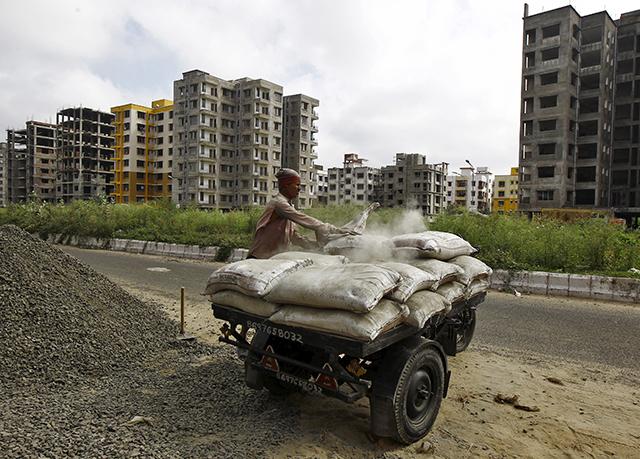Ever since Prime Minister Narendra Modi announced his government’s decision to demonetise Rs 500 and Rs 1,000 notes, sucking out 86% of the currency in circulation in one single swoop, there has been widespread speculation on which sectors will be hit in the near or the long term.
Immediately following Modi’s surprise announcement, stocks of real estate companies like DLF and Unitech nosedived. This also had a knock-on effect on cement stocks. Add to that the possibility that demonetisation could have a negative short-term impact on India’s GDP, and things were looking dismal for the country’s infrastructure sector.
However, the government’s plan to tax the black money it manages to recover may be the proverbial silver lining that the construction and infrastructure sectors were perhaps looking for. Here’s all that you want to know.
How does the government plan to tax the black money it recovers in the wake of the demonetisation exercise?
The government on Monday tabled a bill in the Lok Sabha, which lays this plan out. The government has effectively given a window to black money holders, by proposing to levy a tax, penalty and a surcharge of a total 50% on the amount deposited after demonetisation. Higher taxes and stiffer penalty of up to 85% await those who don't disclose their wealth but are caught.
The bill also provides for those who declare black money to deposit 25% of the amount disclosed in an anti-poverty scheme without interest and a four-year lock-in period.
Those who choose to declare their ill-gotten wealth under the so-called Pradhan Mantri Garib Kalyan Yojana 2016, will have to pay a tax at the rate of 30% of the undisclosed income. Additionally, a 10% penalty will be levied on the undisclosed income along with a surcharge at 33% of tax. For those who continue to hold onto undisclosed cash and are caught, existing provisions of the income tax law will be amended to provide for a flat 60% tax plus a surcharge of 25% of tax (15%), which will amount a levy of 75%.
How much is the government likely to collect by way of such disclosures?
We simply don’t know, because that would be a function either of how willingly people come forward to make disclosures or of how far enforcement agencies can unearth the same. To be sure, a vast majority of untaxed wealth is locked into gold and real estate, and has not been immediately impacted by demonetisation, although Modi has said that his government will go after holders of so-called ‘benami’ properties and even enacted a legislation for the same. Having said that, the government’s last voluntary disclosure scheme that closed on 30 September did manage to get disclosures of more than Rs 65,000 crore, 45% of which would accrue to the government as tax and penalty.
How does the government plan to use the money it collects under the anti-poverty scheme?
The government proposes that the money from the scheme would be used for projects in irrigation, housing, toilets, infrastructure, primary education, primary health and livelihood.
So, which sectors could benefit from all this money going into these sectors?
The biggest beneficiaries will clearly be companies in the civil construction and sanitary ware sectors. If the government were to pump all this money into constructing low-cost housing, schools and primary health centres, toilets and irrigation facilities in villages, companies in the cement and steel sectors could see renewed demand. If big-ticket irrigation projects are taken up, manufacturers of pipes and plastics could get a leg up. The move could also help brick kiln owners and other such small and medium enterprises which operate in the informal sector. Companies in the sanitary ware sector, which have already been buoyed by Modi’s flagship ‘Swachh Bharat’ mission are likely to benefit, too.
Like this report? Sign up for our daily newsletter to get our top reports.





